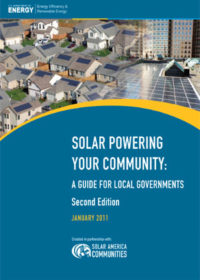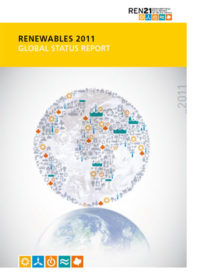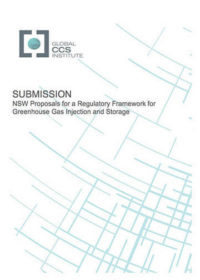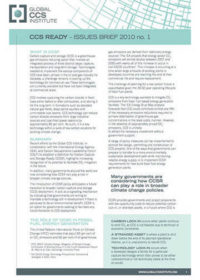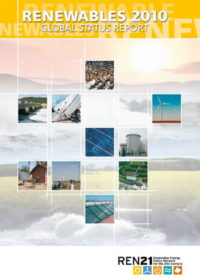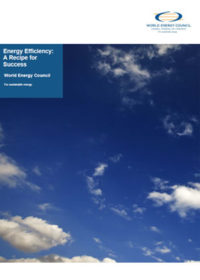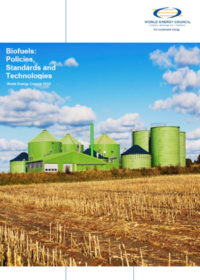Resources
Publications
Our publications, reports and research library hosts over 500 specialist reports and research papers on all topics associated with CCS.
View our Publication Library Disclaimer.
Filter by
Pollution Prevention Control amendment regulations consultation 2011
1st February 2011
Topic(s): Liability, Permitting, Policy law and regulation
Consultation on The Environmental Liability (Prevention and Remediation) (Amendment) Regulations (Northern Ireland) 2011; Groundwater (Amendment) Regulations (Northern Ireland) 2011; The Pollution Prevention Control (Amendment) Regulations (Northern Ireland) 2011
Consultation period: 28 February 2011 - 22 April 2011
Government Response: awaiting
Consulting authority: Department of the Environment (Northern Ireland)
Content: This consultation is on amendments to be made to: Groundwater Regulations (Northern Ireland) 2009; Pollution Prevention and Control Regulations (Northern Ireland) 2003, and; Pollution Prevention and Control Regulations (Northern Ireland) 2003. These amendments are necessary in order to transpose Articles 32, 34 and 37 of the CCS Directive under powers devolved to the Northern Ireland Assembly.
Disclaimer
The content within the Global CCS Institute Publications, Reports and Research Library is provided for information purposes only. We make every effort and take reasonable care to keep the content of this section up-to-date and error-free. However, we make no claim as to its accuracy, currency or reliability.
Content and material featured within this section of our website includes reports and research published by third parties. The content and material may include opinions and recommendations of third parties that do not reflect those held by the Global CCS Institute.
Solar powering your community: a guide for local governments
1st January 2011
Topic(s): Domestic policy, Policy law and regulation, Public engagement, Renewables, Solar energy
This guide can help stimulate ideas or provide a framework for a comprehensive solar plan for a community. Each section is divided into topic areas - typically within the jurisdiction of local governments - that are integral in creating and supporting local solar markets. Each topic area includes:
- An introduction that describes the policy or program and states its purpose
- Information on benefits of implementing the policy or program
- Tips and options for designing and implementing the policy or program
- Examples that highlight experiences from communities that have successfully implemented the policy or program; and additional reports, references, and tools that can offer more information on the topic.
DOE recognizes that there is no one path to solar market development, so this guide introduces a range of policy and program options that can help a community build a sustainable solar infrastructure.
This second edition of the guide was updated to include new market developments and innovations for advancing local solar markets that have emerged since the first edition was released in 2009.
Disclaimer
The content within the Global CCS Institute Publications, Reports and Research Library is provided for information purposes only. We make every effort and take reasonable care to keep the content of this section up-to-date and error-free. However, we make no claim as to its accuracy, currency or reliability.
Content and material featured within this section of our website includes reports and research published by third parties. The content and material may include opinions and recommendations of third parties that do not reflect those held by the Global CCS Institute.
Renewables 2011 global status report
1st January 2011
Topic(s): Economics, Global Status Report, Policy law and regulation, Renewables
Changes in renewable energy markets, investments, industries, and policies have been so rapid in recent years that perceptions of the status of renewable energy can lag years behind the reality. This report captures that reality and provides a unique overview of renewable energy worldwide as of early 2011. The report covers both current status and key trends; by design, it does not provide analysis or forecast the future.
Disclaimer
The content within the Global CCS Institute Publications, Reports and Research Library is provided for information purposes only. We make every effort and take reasonable care to keep the content of this section up-to-date and error-free. However, we make no claim as to its accuracy, currency or reliability.
Content and material featured within this section of our website includes reports and research published by third parties. The content and material may include opinions and recommendations of third parties that do not reflect those held by the Global CCS Institute.
A policy, legal, and regulatory evaluation of the feasibility of a national pipeline infrastructure for the transport and storage of carbon dioxide
31st December 2010
Topic(s): CO2 transport, Policy law and regulation
The report focuses on the transportation of carbon dioxide (CO2) through pipelines from a "source" to a geologic "sink," the possibility of a federal mandate requiring capture and storage of CO2, and provides an overview of carbon capture drivers, the geologic means of storing CO2. It also describes the nature, size, and location of the significant CO2 pipeline system currently operating in the United States. It describes the state and federal regulatory regime, under which the current CO2 pipeline system operates. An analysis is made of the regulation of CO2 pipeline systems under the Interstate Commerce Act and the Natural Gas Act and potential business models for future CO2 pipeline build-out. Potential regulatory models are described and there is discussion of economic issues relative to future construction of CO2 pipelines. Conclusions and recommendations suggest that the market is repsonding to current CO2 pipeline construction demand. Conclusions recommend that future market response to those needs occur with limited federal intervention.
Disclaimer
The content within the Global CCS Institute Publications, Reports and Research Library is provided for information purposes only. We make every effort and take reasonable care to keep the content of this section up-to-date and error-free. However, we make no claim as to its accuracy, currency or reliability.
Content and material featured within this section of our website includes reports and research published by third parties. The content and material may include opinions and recommendations of third parties that do not reflect those held by the Global CCS Institute.
Policy instruments for advancing CCS in Dutch power generation
1st December 2010
Topic(s): Carbon capture use and storage (CCUS), Policy law and regulation
Decarbonisation policy in the Netherlands is heavily dependent on the success of carbon capture and storage (CCS). This report discusses several ways to stimulate CCS in the power sector after the round of demonstration activities that are to start around 2015. It describes recent policy developments in the UK, the US and Germany. It concludes that a policy package is the most useful way forward, including a financial incentive to cover additional costs of CCS and a regulatory instrument such as an emissions performance standard (EPS) or other regulation for new coal-fired power plants. It investigates the impact of different variants of policy packages on the Dutch electricity market, including wholesale market prices, CO2 emissions and export. It looks at pros and cons of various financial instruments and considers possible restrictions the EU legal framework might pose.
Disclaimer
The content within the Global CCS Institute Publications, Reports and Research Library is provided for information purposes only. We make every effort and take reasonable care to keep the content of this section up-to-date and error-free. However, we make no claim as to its accuracy, currency or reliability.
Content and material featured within this section of our website includes reports and research published by third parties. The content and material may include opinions and recommendations of third parties that do not reflect those held by the Global CCS Institute.
Submission: NSW proposals for a regulatory framework for greenhouse gas injection and storage
15th November 2010
Topic(s): Carbon capture use and storage (CCUS), CO2 storage, Policy law and regulation
This submission contains the Global CCS Institute’s response to the Industry and Investment Department’s position paper on NSW proposals for a regulatory framework for greenhouse gas injection and storage. The comments contained in this submission highlight key issues associated with the licensing arrangements, competition with other users, and assessment of eligible storage sites, environmental management and liability.
Disclaimer
The content within the Global CCS Institute Publications, Reports and Research Library is provided for information purposes only. We make every effort and take reasonable care to keep the content of this section up-to-date and error-free. However, we make no claim as to its accuracy, currency or reliability.
Content and material featured within this section of our website includes reports and research published by third parties. The content and material may include opinions and recommendations of third parties that do not reflect those held by the Global CCS Institute.
CCS ready: issues brief 2010 no. 1
3rd November 2010
Topic(s): Carbon capture use and storage (CCUS), Domestic policy, Policy law and regulation
A new paper defines and explains the intricacies around carbon capture and storage ready (CCS Ready) policy, which helps governments prepare power generators for a shift to a low carbon economy and signals future costs to investors.
The paper highlights growing recognition of CCS as an important CO2 mitigation tool. Some 20 per cent of the world’s greenhouse gas emissions can be achieved via the technology, according to the International Energy Agency (IEA).
The paper says that CCS Ready policy needs to be rigorous enough to ensure that retrofit takes place while also being also being open enough to future capture technology advances. Early stage planning for storage is also an important step that underpins what it really means to be CCS Ready, it adds.
Disclaimer
The content within the Global CCS Institute Publications, Reports and Research Library is provided for information purposes only. We make every effort and take reasonable care to keep the content of this section up-to-date and error-free. However, we make no claim as to its accuracy, currency or reliability.
Content and material featured within this section of our website includes reports and research published by third parties. The content and material may include opinions and recommendations of third parties that do not reflect those held by the Global CCS Institute.
Carbon dioxide capture and storage and the UNFCCC: Recommendations for addressing technical issues
1st November 2010
Topic(s): Carbon capture use and storage (CCUS), Policy law and regulation
This policy brief, produced by the World Resources Institute (WRI), provides context, concise analysis, and recommendations to Parties for addressing carbon dioxide capture and storage (CCS) issues raised to date in the twin track United Nations Framework Convention on Climate Change (UNFCCC) and Kyoto Protocol (KP) processes.
Disclaimer
The content within the Global CCS Institute Publications, Reports and Research Library is provided for information purposes only. We make every effort and take reasonable care to keep the content of this section up-to-date and error-free. However, we make no claim as to its accuracy, currency or reliability.
Content and material featured within this section of our website includes reports and research published by third parties. The content and material may include opinions and recommendations of third parties that do not reflect those held by the Global CCS Institute.
Renewables 2010 global status report
1st September 2010
Topic(s): Domestic policy, Economics, Geothermal energy, Global Status Report, Hydroelectricity, Marine energy, Policy law and regulation, Renewables, Solar energy, Wind energy
Changes in renewable energy markets, investments, industries, and policies have been so rapid in recent years that perceptions of the status of renewable energy can lag years behind the reality. This report captures that reality and provides a unique overview of renewable energy worldwide as of early 2010. The report covers both current status and key trends. By design, the report does not provide analysis, discuss current issues, or forecast the future.
Disclaimer
The content within the Global CCS Institute Publications, Reports and Research Library is provided for information purposes only. We make every effort and take reasonable care to keep the content of this section up-to-date and error-free. However, we make no claim as to its accuracy, currency or reliability.
Content and material featured within this section of our website includes reports and research published by third parties. The content and material may include opinions and recommendations of third parties that do not reflect those held by the Global CCS Institute.
Energy efficiency: a recipe for success
1st September 2010
Topic(s): Energy efficiency, Policy law and regulation
This report presents the results of a three-year study on ‘Energy Efficiency Policies’ coordinated by ADEME (French Environment and Energy Management Agency) with the technical assistance of ENERDATA and contributions from more than 70 World Energy Council member countries. The study was aimed at monitoring energy efficiency trends through various indicators and evaluating energy efficiency policies. The report provides updated information and expands the range of countries covered in previous reports prepared by ADEME and WEC for the last five World Energy Congresses.
Disclaimer
The content within the Global CCS Institute Publications, Reports and Research Library is provided for information purposes only. We make every effort and take reasonable care to keep the content of this section up-to-date and error-free. However, we make no claim as to its accuracy, currency or reliability.
Content and material featured within this section of our website includes reports and research published by third parties. The content and material may include opinions and recommendations of third parties that do not reflect those held by the Global CCS Institute.
Biofuels: policies, standards and technologies
1st September 2010
Topic(s): Biofuels / Bioenergy, Engineering and project delivery, Policy law and regulation, Renewables
This World Energy Council report reviews the biofuels debate within the arena of an increasing global appetite for energy. The report presents a global picture but focuses on the Americas. Discussion covers issues related to the diversity of energy supply, standardisation of biofuels, trade policies, sustainability of biofuels production and use and other topical matters with the ultimate objective of promoting a better understanding of the basic fundamentals which will define the future of biofuels worldwide.
Disclaimer
The content within the Global CCS Institute Publications, Reports and Research Library is provided for information purposes only. We make every effort and take reasonable care to keep the content of this section up-to-date and error-free. However, we make no claim as to its accuracy, currency or reliability.
Content and material featured within this section of our website includes reports and research published by third parties. The content and material may include opinions and recommendations of third parties that do not reflect those held by the Global CCS Institute.
Carbon, capture, transport and storage regulatory test exercise: 11 & 12 August 2010. Output report
12th August 2010
Topic(s): Carbon capture use and storage (CCUS), Policy law and regulation
From April to August 2010, the Scottish Government coordinated a scenario project to assess the regulatory framework for carbon capture and storage (CCS) in Scotland. The principal objective of the project was to identify any regulatory gaps or overlaps that could be streamlined or better managed, and to evaluate the risks, barriers, information gaps and any other issues that would affect the successful demonstration and deployment of CCS in Scotland.
The project comprised the following components:
- An illustrative CCS project application to cover full chain, capture, transport, storage and decommissioning – based on a coal-fired plant, post-combustion capture, onshore pipeline transport, with storage in the North Sea;
- Consideration of the project application in a live process exercise involving all of the major stakeholders in a two day workshop (developers, regulators[1], government, NGOs, public interest groups);
- Cradle to grave assessment of the whole project for the full raft of 56 consents/licenses required.
- External peer review assessment and critique of the process by observers from the Global CCS Institute and EU Zero Emissions Technology Platform (ZEP).
Key findings of the process:
- Full chain CCS projects are some of the largest infrastructure projects ever considered in Scotland with some of the greatest amounts of public funding;
- These are complex projects involving multiple interest groups and a range of overlapping regulatory regimes;
- The regulatory framework for CCS is emerging well in the UK, with regulators taking a positive, enabling approach to CCS projects, whilst protecting the environment and human health;
- Aspects of CCS regulation are still emerging, particularly offshore, where there is greatest uncertainty for developers, and regulators and developers will 'learn by doing';
- Some remaining technological issues need to be addressed before regulators can be certain, but projects are underway to address these gaps;
- Environment agencies could permit a good application now within the existing regulatory framework which is generally fit-for-purpose
- Co-operation and joint working across Government departments and regulators will be essential to ensuring effective management of CCS regulation within the demanding timescales required by the UK and EU CCS competitions;
- Regulators could also look at procedures to improve the way in which environmental information is made available as part of the licensing/consenting process; and at ways to better inform the public about the whole chain of a CCS project and the many consents and consultations associated with this.
- Early discussions with stakeholders are key to streamlining the regulatory process in all parts of the CCS chain
- Public awareness/engagement is the key issue that will determine the overall success of CCS projects.
Overall conclusions
From this, participants concluded that the CCS demonstration programmes planned at UK and EU level would be the primary vehicle for testing and refinement of the regulatory approach and for effective public engagement. Ensuring that this was a key feature of the demonstration projects was as important as them assessing the economic and technical viability of CCS and will be a key part of the knowledge exchange and learning to be made available in the demonstration programmes.
It is clear that all of the early enablers (developers, regulators, governments, NGOs, academics) have a big responsibility in ensuring the successful demonstration of CCS. Much of the learning around CCS – on the regulatory aspects as well as on the technical and economic ones will come through engagement with the actual project applications coming forward under the demonstration programme.
Overall, given the complexity and size of the CCS projects and the large numbers of permits required, the process showed that effective management of the regulatory framework would be crucial to the success of the demonstration programme in the UK and EU. There is general support amongst participants (developers, regulators, NGOs, government) for managing project applications collectively through some form of project monitoring board that can consider the collective time management of all of the permits in the round.
[1] Department for Energy and Climate Change (DECC) Offshore, The Crown Estate, Marine Scotland, the Scottish Government Energy Consents Unit, the Scottish Environment Protection Agency (SEPA), the Health & Safety Executive (HSE) and Scottish Natural Heritage (SNH))
Disclaimer
The content within the Global CCS Institute Publications, Reports and Research Library is provided for information purposes only. We make every effort and take reasonable care to keep the content of this section up-to-date and error-free. However, we make no claim as to its accuracy, currency or reliability.
Content and material featured within this section of our website includes reports and research published by third parties. The content and material may include opinions and recommendations of third parties that do not reflect those held by the Global CCS Institute.

